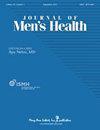Test-retest reliability of power, pinch, and tripod grip strengths in male baseball players: a preliminary study
IF 0.6
4区 医学
Q4 Medicine
引用次数: 0
Abstract
Since baseball players must grip and pinch the ball, grip strength is paramount. However, current assessments on various grip types need to be more comprehensive. This study aimed to determine the test-retest reliability of different handgrip strengths measured by a dynamometer connected to a player’s smartphone. Sixty male baseball players sponsored by secondary schools (middle- and high-schools) or colleges varying in age (12–22 years) were selected as participants. For male baseball players, three types of grip strengths were evaluated using a dynamometer and smartphone application: power, pinch, and tripod grip. The test was conducted thrice for each grip. Overall grip strength measurements showed slight decreases across tests and tended to increase with academic grade level. Tests 1 and 2 indicated good-to-excellent retest reliability for three grip strength positions by determining their intraclass correlation coefficients (ICCs) (middle-school power grip: 0.917 (0.644–0.973); collegiate pinch grip: 0.920 (0.770–0.970); high-school tripod grip: 0.929 (0.728–0.976)). In addition, these results determined moderate reliability compared to other grip strengths in the three groups (middle-school tripod grip from Tests 1 and 2: 0.779 (0.428–0.914); collegiate power grip from Tests 2 and 3: 0.738 (0.360–0.895)). This study concluded that the studied grip strength tests are reliable measurements, with an acceptable margin of error, for male baseball players from childhood to adulthood. Therefore, these handgrip strengths may be used as preliminary values to help discipline and rehabilitate baseball players and other athletes.男棒球运动员握力、捏握力和三脚架握力的重测信度:初步研究
因为棒球运动员必须抓住并捏住球,所以握力是最重要的。然而,目前对各种握把类型的评估需要更加全面。这项研究旨在确定不同握力的测试重测可靠性,该测试由连接到玩家智能手机的测力计测量。由中学(初中、高中)或大学(12 ~ 22岁)赞助的60名男子棒球运动员被选为参加者。对于男性棒球运动员,使用测力计和智能手机应用程序评估了三种握力:力量、捏握和三脚架握力。每次抓握都要进行三次测试。整体握力测量显示,在测试中略有下降,并倾向于随着学术等级水平的提高而增加。检验1和检验2通过确定三个握力姿势的班级内相关系数(ICCs)(中学强力握力:0.917(0.644-0.973);大学捏握:0.920(0.770-0.970);高中三脚架握力:0.929(0.728-0.976)),表明三种握力姿势的重测信度从优到优。此外,与其他握力相比,这些结果确定了三组的中等信度(测试1和2的中学三脚架握力:0.779(0.428-0.914);测试2和3的大学握力:0.738(0.360-0.895))。这项研究的结论是,所研究的握力测试是可靠的测量,具有可接受的误差范围,从童年到成年的男性棒球运动员。因此,这些握力可以作为初步值,以帮助纪律和康复棒球运动员和其他运动员。
本文章由计算机程序翻译,如有差异,请以英文原文为准。
求助全文
约1分钟内获得全文
求助全文
来源期刊

Journal of Men's Health
Medicine-Urology
CiteScore
0.70
自引率
28.60%
发文量
153
审稿时长
10 weeks
期刊介绍:
JOMH is an international, peer-reviewed, open access journal. JOMH publishes cutting-edge advances in a wide range of diseases and conditions, including diagnostic procedures, therapeutic management strategies, and innovative clinical research in gender-based biology. It also addresses sexual disparities in health, life expectancy, lifestyle and behaviors and so on. Scientists are encouraged to publish their experimental, theoretical, and descriptive studies and observations in as much detail as possible.
 求助内容:
求助内容: 应助结果提醒方式:
应助结果提醒方式:


